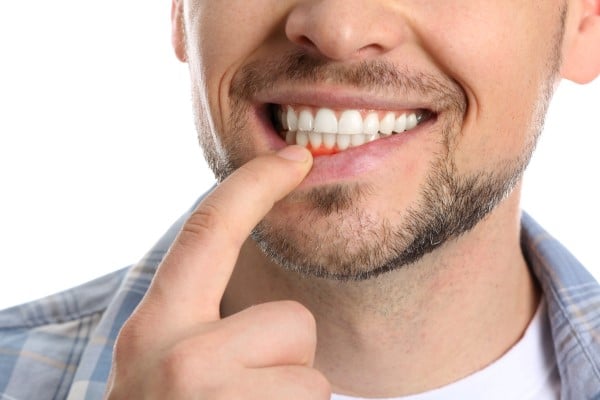Tips for People with Sensitive Teeth
Having sensitive teeth is a frustrating, painful, yet very common problem. Whether you're dealing with occasional discomfort or constant sensitivity, there are steps you can take to help manage your symptoms and improve your quality of life. Here are some of those steps:
- Use a toothpaste designed for sensitive teeth: There are toothpaste formulations specifically designed for those with sensitive teeth. These toothpastes contain ingredients like potassium nitrate or stannous fluoride, which can help to desensitize and provide a relief from sensitivity. If this is something you struggle with, pick up a tube of Fluoridex® from our office after your next dental checkup.
- Use a fluoride mouthwash: Just like toothpaste, there are some mouthwashes that contains fluoride which will strengthen your tooth enamel and reduce tooth sensitivity. Look for a mouthwash that contains fluoride and use it as directed.
- Avoid acidic foods and beverages: Acidic foods and drinks can wear away the enamel on your teeth, making them more prone to sensitivity. Try to limit your consumption of acidic items like citrus fruits, soda, and vinegar, and be sure to rinse your mouth with water after consuming them to help neutralize the acid.
- Professional application of desensitizing agents: Your Dentist may choose to apply layers of medicaments to desensitize your teeth. Ask your dentist if he/she can help you with this.
- Clenching or grinding may be the culprit: Clenching or grinding your teeth can cause damage to the enamel and causes “notched” lesions along the gum lines of your teeth (A phenomena called “Abfraction”). And this surely will lead to increased sensitivity. It’s best to be mindful of when you’re actively clenching your teeth to stop it in the act. If you tend to clench or grind your teeth during your sleep, consider wearing a bite splint (aka “night guard”) because no one has a good control over their clenching/grinding habit during their sleep. Again, ask your dentist if he/she sees any objective signs of active grinding (such as scalloped teeth marks on the tongue).
Managing sensitive teeth can be a challenge, but with the right approach and care, you can find significant relief and improve your quality of life. By using sensitive toothpaste, practicing good oral hygiene, avoiding acidic foods, and seeking professional treatments, you can take steps to reduce sensitivity and enjoy a healthier, happier smile. If you have any further questions, don’t hesitate to reach out to our office at 408-226-5560 or email us at info@ddsbaik.com. One of our dedicated team members will answer any questions or concerns you may have in regards to reducing your teeth sensitivities.
Check out what others are saying about our services on Yelp: Read our Yelp reviews.
[recent-blogs count=”4″ layout=”horizontal”]

